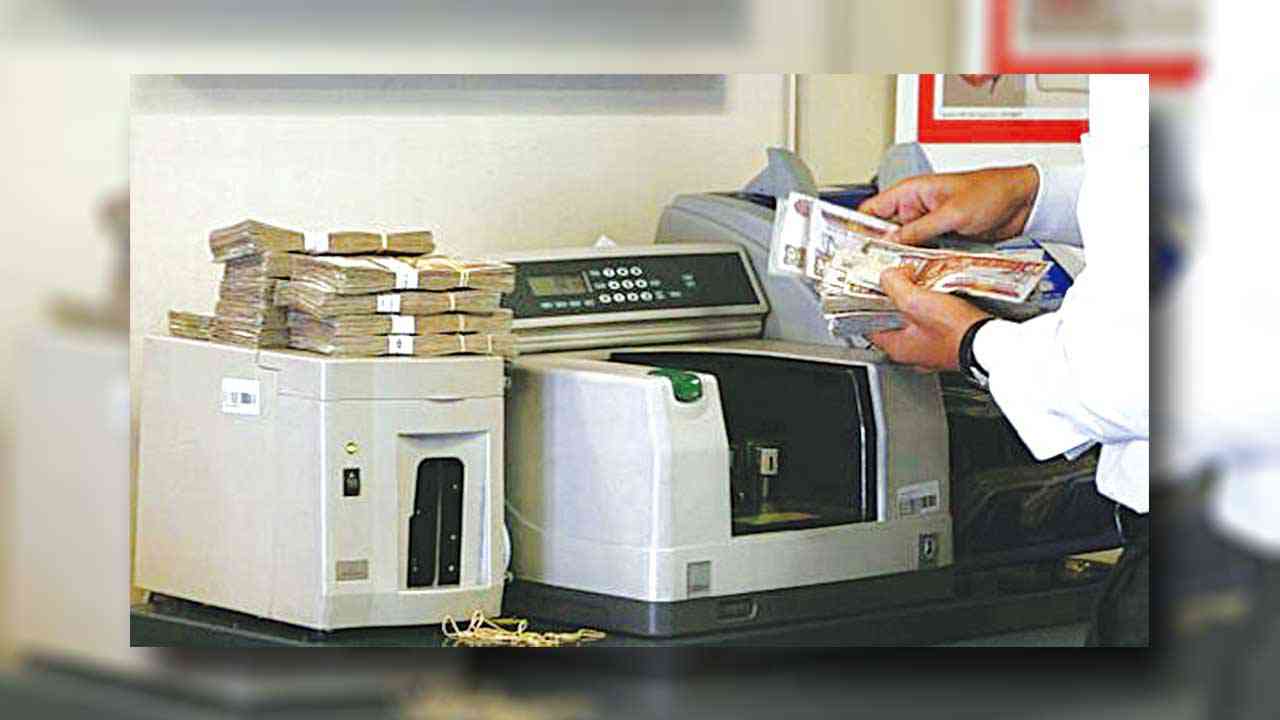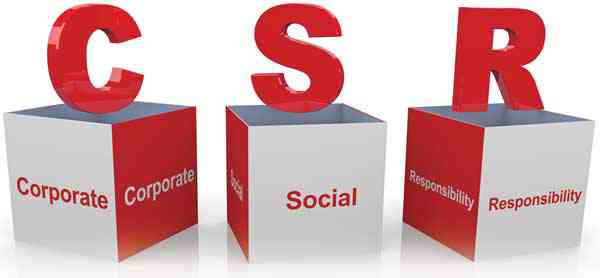
Unspent Corporate Social Responsibility funds by companies is one of the several reasons which have compelled the Minister of Finance, Pravind Jugnauth, to review the CSR Framework.
Since the Corporate Social Responsibility was introduced in 2009, the Mauritius Revenue Authority (MRA) has collected Rs 890.4 Million of unspent CSR money by companies. This amount is transferred to the Consolidated Fund within one week of collection. The unspent CSR money collected by MRA and remitted to the Consolidated Fund to-date is as follows:
- Fiscal Year 2010 – Rs 149.5 Million
- Fiscal Year 2011 – Rs 116.4 Million
- Fiscal Year 2012 – Rs 130 Million
- Fiscal Year 2013 – Rs 124.7 Million
- Fiscal Year 2014 – Rs 166.5 Million
- January 2015 – June 2015 – Rs 55.8 Million
- Fiscal year 2015/16 – Rs 147.5 Million
Six priority areas of intervention
The CSR guidelines will include the 6 priority areas of intervention, namely:
- Poverty Alleviation– targeting families in the Social Register of Mauritius (SRM);
- Educational Support – targeting families in the SRM;
- Social Housing – targeting families in the SRM;
- Supporting persons with severe disabilities;
- Dealing with health problems resulting from substance abuse and poor sanitation; and
- Family protection, i.e., protection to victims of domestic violence.
Answering a Private Notice Question of the Leader of the Opposition, last Friday, Pravind Jugnauth announced that during the pre-budget consultations, he received numerous representations from civil society organisations concerning the operation of the CSR system. The main criticisms levelled were as follows:
- Lack of focus on poverty alleviation and assistance to vulnerable groups (diversion from the original objectives);
- Arbitrariness and lack of transparency in the allocation of CSR funds by companies;
- Difficulty in accessing funds by some deserving NGOs and other civil society organisations;
- In the absence of guidelines, there has been a proliferation of all types of organisations and clubs just to benefit from the CSR funds; and
- Lack of proper monitoring and evaluation of CSR programmes and activities.
Moreover, there have been many instances where the CSR funds were not directed to the support of vulnerable groups. After giving careful consideration of the representations received and after assessing the current system, the Minister of Finance announced a new CSR Framework in the Budget 2016/17 “with a view to ensuring greater transparency and better outcomes in the implementation of CSR programmes.”
Financial Support to NGOs
From the Consolidated Fund, Government is providing direct financial support to NGOs yearly : Rs 235 Million during Fiscal Year 2014, Rs 106.5 Million (January – June 2015), Rs 245 Million (Fiscal Year 2015/16) and Rs 293 Million (Fiscal Year 2016/17). Moreover, a one-off amount of Rs 100 Million has been paid as seed capital to Lovebridge Ltd in January 2016 from the Consolidated Fund.
Geerish Bucktowonsing: “Access to funds must not be a hurdle”
The President of Macoss, Girish Bucktowonsing, states that NGOs have always faced difficulties in accessing funds. “There were certain guidelines that did not allow NGOs to have access to finance. At times, NGOs waited a lot to obtain funds but they were unable to do so. The timeframe for application was also limited. Rs 200 million went into the consolidated fund. The existence of NGOs in a society is of paramount importance and access to funds must not be a hurdle.” The President welcomes the National CSR Foundation. “In the past, we did not know where the money was going. With the setting up of the National CSR Foundation, there will indeed be more transparency. It is a great support for NGOs. However, the Foundation should be more user-friendly, with proper guidelines, transparency and working for the benefit of all NGOs. It must be more flexible for the allocation of funds by the National CSR Foundation. The approach must be to promote meritocracy. We need to see what kind of guidelines will be put forward, how the foundation will develop and who will be leading the foundation.” Girish Buckowonsigh believes that other amendments could have been brought online with this National Foundation. “Currently, there is no framework for NGOs. It would be more appropriate if the NGOs would operate in duly established framework.”
National CSR Foundation
A new National CSR Foundation will be set up under the aegis of the Ministry of Social Integration and Economic Empowerment. It will be managed by a Board of Directors, comprising a Chairperson, members from the private sector, public sector and civil society. It will be set up after the Finance Bill has been passed and it will be fully operational before January 2017.
Businesses will be required to contribute through MRA at least 50% of their CSR money to the new National CSR Foundation at the start of their next accounting year. For example, for companies with accounting period ending 31 December 2016, the new CSR framework will be applicable as from 1st January 2017. The rate of contribution will be changed to at least 75% in the following year.
The New Corporate Social Responsibility (CSR) Framework

Background
1. The Corporate Social Responsibility (CSR) system was introduced in the Income Tax Act in 2009, whereby profitable companies were required to devote 2% of their book profits for carrying out CSR activities under approved programmes as per published guidelines. These activities could be carried out either directly by the companies or through the following:
i.An approved NGO
ii.A Special Purpose Vehicle (SPV) - such as a Foundation
iii.A Corporate partner
2. The Programmes approved by the then CSR Committee in 2009 were in the following areas of intervention:
i.Socio economic development
ii.Health
iii.Leisure and sports
iv.Environment
v.Education & training
vi.Natural Catastrophes
3. Over time, detailed guidelines were worked out by the Committee for each area of intervention to which implementing agencies had to abide with. Each area of intervention was sub divided into 21 categories and covering such areas as:
- Sterilisation and control of stray dogs and cats
- Promote road safety (awareness campaigns)
- Prevention of drug, cigarette and alcohol consumption
- Excellence in sports
- Waste management
- Maintenance of national heritage
- Bio-diversity
4. In the Budget Speech of November 2010 (para 333), the Hon. Minister Pravind Jugnauth stated the following:
‘To this end, we are reviewing the utilisation of CSR. Our aim is to focus on the most urgent problems so as to maximise the social benefits and ensure national coverage. We will therefore use 50 percent of the CSR resources to focus on the three National Programmes. Government will add to the CSR resources to implement these three programmes which are:
- Social Housing
- Welfare of Children from Vulnerable Groups
- Eradication of Absolute Poverty.’
The CSR guidelines were amended accordingly.
5. As from January 2012, the basis of the 2% CSR contribution was modified to ‘profits chargeable to income tax’ as compared to book profits. At the same time, another priority area namely ‘prevention of non-communicable diseases’ was included.
6. In July 2015 all CSR guidelines were removed and companies were allowed to use their CSR funds according to their own CSR framework.
Pre Budget Consultations
7. During the pre-budget consultations, numerous representations were received from civil society organisations concerning the operation of the CSR system. The main criticisms levelled were as follows:
- Lack of focus on poverty alleviation and assistance to vulnerable groups (diversion from the original objectives);
- Arbitrariness and lack of transparency in the allocation of CSR funds by companies;
- Difficulty in accessing funds by some deserving NGOs and other civil society organisations;
- In the absence of guidelines, there has been a proliferation of all types of organisations and clubs just to benefit from the CSR funds; and
- Lack of proper monitoring and evaluation of CSR programmes and activities.
8. There have been many instances where the CSR funds were not directed to the support of vulnerable groups as originally intended.
The New CSR Framework
9. After giving careful consideration of the representations received and after assessing the current system, a new CSR Framework was announced in the Budget 2016/17 with a view to ensuring greater transparency and better outcomes in the implementation of CSR programmes.
10. The proposed Framework is set out below:
a)Setting up of the National CSR Foundation under the aegis of the Ministry of Social Integration and Economic Empowerment
The new Foundation will be managed by a Board of Directors, comprising members from the public sector, the private sector and the civil society. Its key roles and functions will be:
- Undertaking programmes and projects for the benefit of the vulnerable groups;
- Allocation of CSR funds in line with specific guidelines;
- Monitoring and evaluation of CSR Programmes; and
- Serving as a platform for coordination and communication among all stakeholders.
b)Priority Areas of Intervention
The purpose of having areas of intervention is to have a focussed approach on the following:
- Poverty Alleviation– targeting families in the Social Register of Mauritius (SRM);
- Educational Support – targeting families in the SRM;
- Social Housing – targeting families in the SRM;
- Supporting persons with severe disabilities;
- Dealing with health problems resulting from substance abuse and poor sanitation; and
- Family protection i.e. protection to victims of domestic violence.
c)Allocation of CSR Money
Money endowed to the National CSR Foundation will inter alia be allocated to support civil society actions in the above six priority areas.
There will be a possibility of co-financing by the National CSR Foundation of existing CSR Programmes carried out by companies and their foundations, which fit within the six priority areas.
d)CSR Contributions
i)Businesses will be required to contribute through MRA at least 50% of their CSR money to the new National CSR Foundation at the start of their next accounting year – for example for companies with accounting period ending 31 December 2016, the new CSR framework will be applicable as from 1st January 2017. The rate of contribution will be changed to at least 75% in the following year.
ii)Those making returns under the Advance Payment System (APS) will have to make CSR contributions on a quarterly basis. Thus, for a company with accounting year starting on 1st January 2017, the first payment will be on 30th June 2017.
iii)Those which have no APS obligations will be required to effect payment of the 50% of the CSR money at the time of submission of their annual income tax return i.e. 30 June 2018 for those with accounting year ending 31 December 2017.
iv)Any unspent balance of CSR money should be remitted at the time of submission of annual income tax return to MRA as per the current practice.
v)The money collected by the MRA will be channeled to the National CSR Foundation.
 J'aime
J'aime














